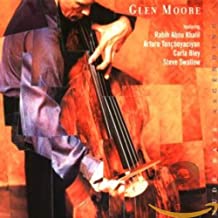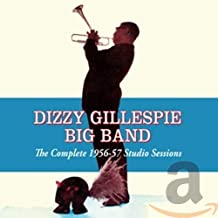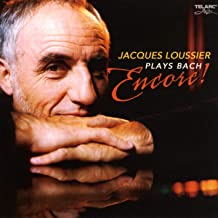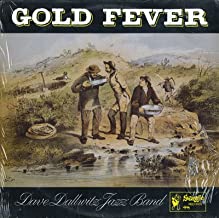
Daily Dose Of Jazz…
Glen Moore, born October 28, 1941 in Portland, Oregon started his performing career began at age 14 with the Young Oregonians in Portland. It was at this time where he met and played with Native American saxophonist, Jim Pepper.
Graduating with a degree in History and Literature from the University of Oregon, his formal bass instruction started after college with Jerome Magil in his hometown, James Harnett in Seattle, Washington, Gary Karr in New York City, Plough Christenson in Copenhagen, Denmark, Ludwig Streicher in Vienna, Austria, and Francois Rabbath in Hawaii.
Moore is a founding member of Oregon but worked also regularly with Rabih Abou-Khalil, Vasant Rai, Nancy King, and Larry Kar. For the past 30 years, has played a Klotz bass fiddle crafted in Tyrol circa 1715 on which he has made extensive use of a unique tuning with both a low and high C string. He has recorded ten albums as a leader, twenty~eight with Oregon, and twenty as a sideman. Double bassist Glen Moore, who also plays piano, flute, and violin continues to perform and record.
More Posts: bandleader,bass,flute,history,instrumental,jazz,music,piano,violin

Three Wishes
Pannonica inquired of Marshal Royal what his three wishes would be if given and his response was:
- “Health.”
- “Life.”
- “Happiness.”
*Excerpt from Three Wishes: An Intimate Look at Jazz Greats ~ Compiled and Photographed by Pannonica de Koenigswarter
More Posts: baroness,history,instrumental,jazz,music,pannonica,saxophone,three,wishes

Daily Dose Of Jazz…
William Carl “Bama” Warwick was born on October 27, 1917 in Birmingham, Alabama and lived in Brookside, Alabama as a child. Moving northward in the early 1930s he lived with Charlie Shavers and together they moved to Philadelphia, Pennsylvania in 1936. There they became members of Frank Fairfax’s band, playing alongside Dizzy Gillespie.
They subsequently played with Tiny Bradshaw and the Mills Blue Rhythm Band. After Shavers left to join John Kirby’s ensemble, Carl then worked with Teddy Hill, Edgar Hayes, Don Redman, and Bunny Berigan. During World War II, he conducted a military band, and played with Woody Herman in 1944-45, then with Buddy Rich.
In the 1950s he led his own group and also worked with Lucky Millinder and Brew Moore; he returned to Gillespie’s employ in 1956, playing intermittently with him until 1961. He took a position in 1966 directing music with the New York City Department of Corrections, and in 1972, he appeared at the Newport Jazz Festival with Benny Carter.
Trumpeter Carl Bama Warwick passed away in 2003, in Philadelphia, Pennsylvania.
More Posts: bandleader,history,instrumental,jazz,music,trumpet

Daily Dose Of Jazz…
Jacques Loussier was born on October 26, 1934 in Angers, France. Starting piano lessons there aged ten, the following year he heard a piece from the Notebook for Anna Magdalena Bach. He fell in love with the music and began adding his own notes and expanding the harmonies. By 13, he met the pianist Yves Nat in Paris, who regularly gave him projects for three months, after which he returned for another lesson.
While studying at the Conservatoire National Musique, Loussier began composing music, having moved by then to Paris, with Nat, from the age of 16. He played jazz in Paris bars to finance his studies, and fusing Bach and jazz was unique at the time. After six years of studies, he traveled to the Middle East and Latin America, where he was inspired by different sounds. He stayed in Cuba for a year.
Early in his career, he was an accompanist for the singers Frank Alamo, Charles Aznavour, Léo Ferré, and Catherine Sauvage, before forming a trio in 1959 with string bass player Pierre Michelot, a Reinhardt alum, and percussionist Christian Garros. The trio began with Decca Records then moved to Philips/Phonogram in 1973, selling over six million albums in 15 years.
By the mid-1970s, the trio dissolved and Jacques set up his own recording studio, Studio Miraval, where he composed for acoustic and electric instruments. He recorded with musicians such as Pink Floyd, Elton John, Sting, Chris Rea, and Sade. Reviving his trio in 1985, with the percussionist André Arpino and the bassist Vincent Charbonnier. As early as 1998 the trio recorded interpretations). Besides Bach, the trio recorded interpretations of classical compositions on the album Satie: Gymnopédies Gnossienne. His last albums, My Personal Favorites, and Beyond Bach, Other Composers I Adore, were released in 2014, on the occasion of his 80th birthday.
Suffering a stroke during a performance at the Klavier-Festival Ruhr on July 14, 2011 retired from the stage. Pianist Jacques Loussier, who performed in the classical, jazz, and third stream arenas, passed away on March 5, 2019 at the age of 84.
More Posts: bandleader,composer,history,instrumental,jazz,music,piano

Daily Dose Of Jazz…
David Friedrich Dallwitz was born on October 25, 1914 in Freeling, South Australia. He studied violin as a child and after moving with his family to Adelaide, South Australia in 1930, he developed an aptitude for jazz piano. Beginning in 1933 for two years he studied concurrently at the South Australian School of Art and the North Adelaide School of Fine Art.
He led the Southern Jazz Group, a Dixieland band that performed at the first Australian Jazz Convention. Abandoning jazz for a period, he studied at the Elder Conservatorium of Music, composing symphonic and chamber music and taking up bassoon and cello. He became involved in composing and arranging music for revues, leading to the formation of the Flinders Street Revue Company, for which he also directed and played piano.
Returning to jazz in 1970, he resumed recording. He worked with Australian progressive musicians such as John Sangster, Bob Barnard, and Len Barnard. He led the Dave Dallwitz Ragtime Ensemble.
Pianist, bandleader, composer, and arranger, painter, and art teacher Dave Dallwitz, who led jazz, Dixieland and ragtime bands, passed away on March 24, 2003 in Adelaide after finishing the artwork for his album The Dave Dallwitz Big Band live at Wollongong, December 1984.
More Posts: arranger,bandleader,composer,educator,history,instrumental,jazz,music,painter,piano



